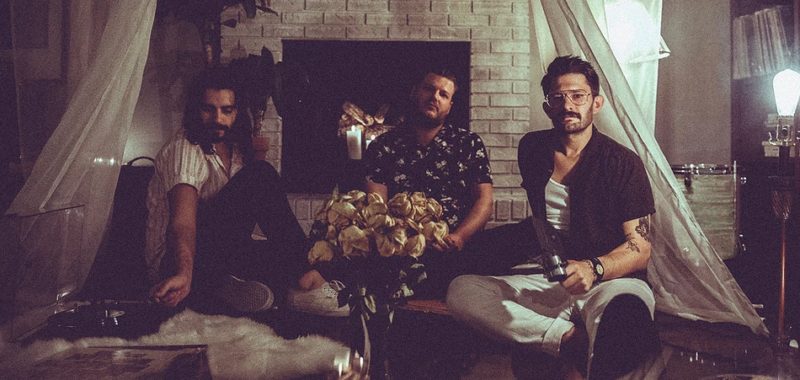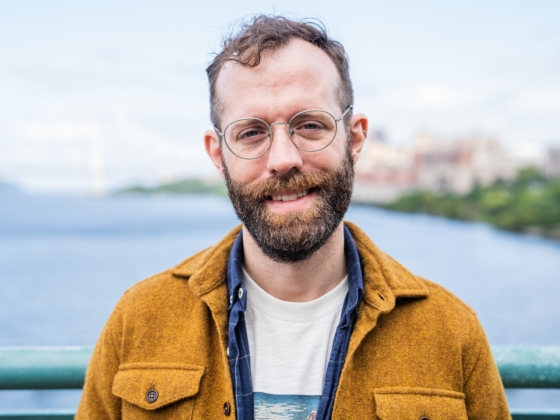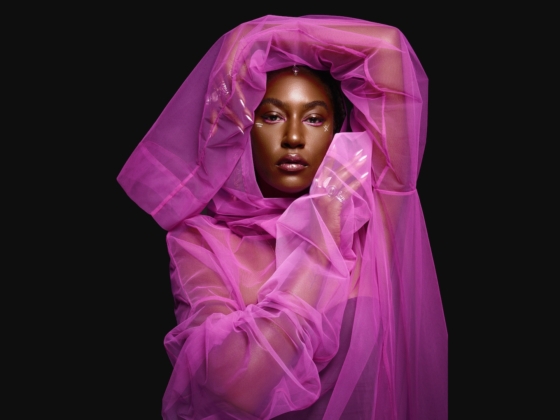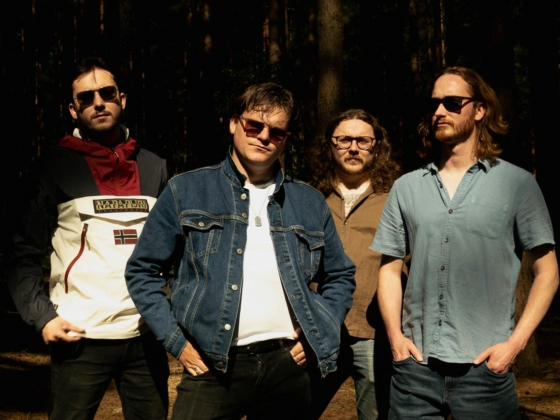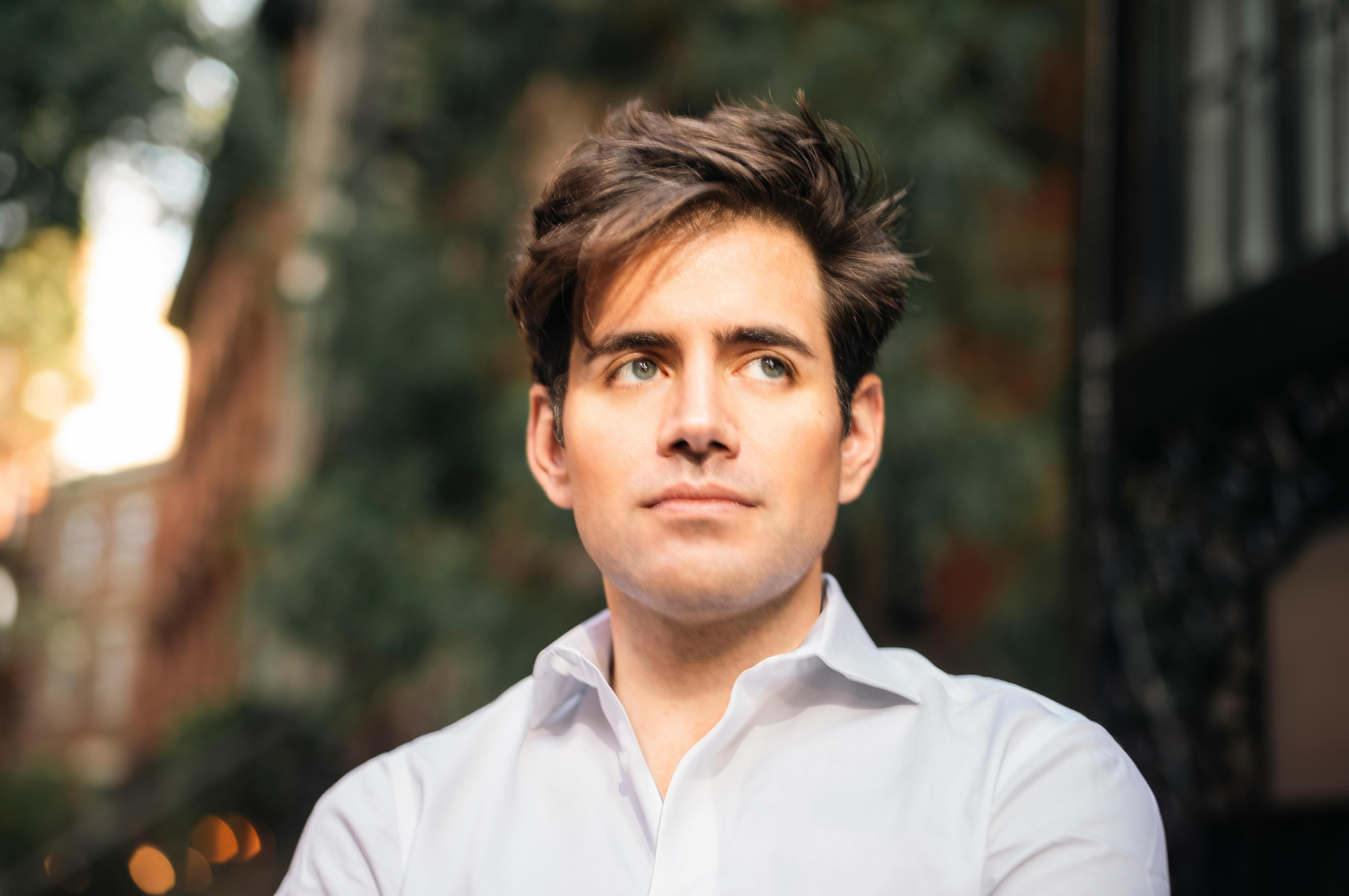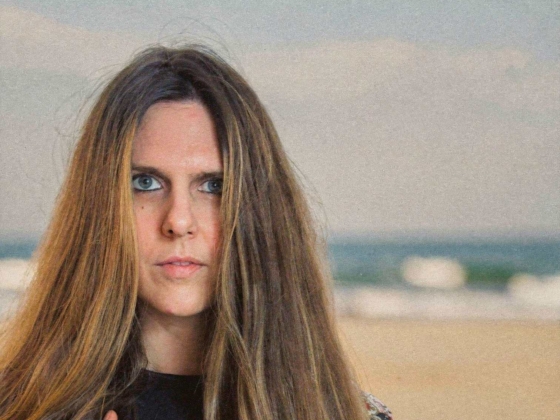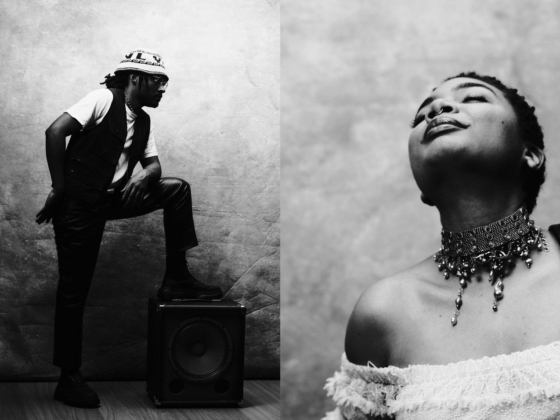The curse of the year which must not be named (2020) hit virtually everyone, in one universal as well as painfully individual ways. As Animal Years first touched down in Nashville in early 2019 to begin recording their sophomore album, everything seemed to be business as usual. That is, until their record label dropped them the day after they left the studio, album finally completed. So lead vocalist Mike McFadden and bassist Anthony Saladino made a more permanent move to Nashville, needing the mental reset, while Anthony Spinnato (drums) remained in New York. And just as things began to settle down down again, 2020 hit, bringing with it a deadly tornado, a global pandemic, and national civil unrest. It seemed that a new album was just simply not in the cards for the New York alt rock group.
But once the long-term implications and realities of the pandemic began to sink in, the band quickly realized that "the right circumstances" could be reinterpreted as any that fit their needs and their wants, not the other way around. So they revisited those songs they made with such care, deciding to release them out into the world in multiple parts: two EPs dropping on February 26th and May 21st respectively, culminating in their album, This Is An Album Called Animal Years, dropping on June 18th. Having already released the first snippet, "Talkin' To You," today they premiere their second single, "What I'm Fighting For," an apt title for a one hell of a comeback.
Formed in 2013 by McFadden, Animal Years has steadily grown through a fanbase that perused New York's bars and music venues, from bowling-alley-turned-live-music-show Brooklyn Bowl all the way to 2013's Best Club in America, as awarded by Rolling Stone Magazine, the Bowery Ballroom. While their sound can be distantly compared to that of Kings of Leon—the high energy of a live show diffused by the intimate professions of its cryptic lyrics—it has often transcended border lines, not quite fitting in with the experimental New York scene, but not quite sitting in a comfortable folk/americana mold either. But much like "What I'm Fighting For," there is a familiarity to it all the same. A soft-paced drum gently pats you on the back as a distorted guitar turns that pat into an encouraging nudge—a push to join in on the "will not give up / on what I'm fighting for" mantra. Somehow it moves past the cliché potential, landing promptly in the camp of "that's right, and fuck you 2020" instead. EARMILK spoke to McFadden about the year that never seemed to end, the decision to release their album, and the inspirations that brought them here in the first place.
How's it looking in Nashville right now?
It's looking alright. I've been here—I haven't left here—I've been here since last January when we got back from our last show. So I have not left since then. So I mean, it's looking a little the same. I'd like a change in scenery at some point.
I bet.
But we're all being extremely cautious. Not travelling, and haven't travelled for a year.
How much would you say the process of writing and recording music is actually influenced by the landscape, or the city you're in?
I think in New York, when I was writing music there, you were going to find a lot more of —you know, in New York, there's definitely more of a grind-and-hustler-like mentality. So during that time, when I was there, you probably hear a lot more music and lyrics and themes based on that. But I would say, it doesn't really have an effect on the style of music. I think more than anything, just where I am—my current state, or stage of life—has way more influence on what I'm writing. I mean, with our single, "What I'm fighting For," that was kind of my transition from New York to Nashville.
That's fair, and it's just interesting to me, because as someone who sort of had these writing sessions done in different cities and essentially different parts of the country, I'm curious to know whether you find that working with other people or being around a certain culture that places an emphasis on certain sounds has affected your own writing at all.
Yeah, I think it's way more—it's a place, but it's where you're from, is where you're going to get the most influence. Our sound is very much like a mixture of rock and Southern, country-like tones. And I think that has a lot to do with me being from Baltimore, and being south of the Mason-Dixon line, technically a southern state, but it's considered the Northeast for the Mid-Atlantic. And because it's kind of smack dab right in the middle, you get a lot of different influences. And there are all types of music thriving in Baltimore. So I think it's way more of an influence [on me] than any place that I moved to afterward.
So your following—the momentum in the beginning—how much do you feel like that came way from making waves in these undergrounds shows and just plain touring, versus the now-expected form of viral streaming?
I didn't have a ton of success in Baltimore. My music was just always a little more pop and folk-rock and country kind of vibes, and it didn't really mesh well with Baltimore to get some decent radio airplay there. And I think that kind of propelled me to end up moving to New York, and doing that in New York was way more accepting of it. And I would say that's where we really started gaining a following and a buzz. And there are so many more places you can play in New York, that you could play every week. And it wasn't like you're just wearing out the same venue like you would do in Baltimore. So I think that helped a lot, just kind of grinding in New York and playing those weekly shows, playing residencies, you know, like where you play one venue, the same stage every week for a month or longer. That's stuff you could kind of really only do in New York.
Well, now you're here. And I know it seems like every single thing that could possibly go wrong with your new album went wrong. How did you manage to push through all that?
It was interesting. I mean, the first couple months were really tough. You know, we went on tour, we were supposed to be touring, we already had a tour planned, and we had to cancel it. So that's why it was hard with no new music out and no plans to put it out. And after that tour, I think we kind of took a little time to regroup. And then shortly after that, we realized that we needed to make a switch. We don't have a label anymore, we parted ways with our management, and we decided to move to Nashville and kind of reboot down there. So that was kind of one of the ways that I think kept us going, just trying to do it again in a new city. I mean, I remember how exciting it was when we did that in New York, when we were first starting out. And then quickly after that, things started to pick up and we were doing some cool gigs like the Rock Boat, and started to gain a ton of fans through there. And things really were starting to pick up and then once again, got hit with two major blows pretty quick with the tornado in Nashville, and then the pandemic. And then I think through that whole thing, we kind of kept ourselves going through some volunteer work and some activism. And I don't know, we've always just found a way to move past it, like the single 'What I'm Fighting For' has this—that theme is exactly what the title says. That song was written before either of these things, so it's just always been a theme with the band.
Listening to "What I'm Fighting For," I honestly thought it was written after all of what happened as a response to everything that had happened. So it's surprising to find out that wasn't the case, but were there any other songs or singles coming up in the EPs or final album that were written after the fact as a response to it all?
Well…trying to think. So many of those songs were written before—I mean, we recorded that music in February 2019. So the music was recorded before all of those things; we found out that we were getting dropped from our label after we recorded the record so we weren't dealing with any of those things. We were kind of riding a wave upwards and going in to the studio.
Well, let me ask you this instead: now that you have gone through everything, and you still get to put out this album and you get to do it in your way, do you feel like it has any more meaning, or feel any more powerful?
Yeah, one of the benefits of the writing that I do is that I try to keep the themes very general. I mean, 'What I'm Fighting For' can be applied to anything that's going on in your life, for any person. And so I think this song means so much more, and I'm so glad that I wrote this song, and that we put it out, because after all this shit, it does mean a lot. It just, it's taken on a whole new meaning. And I think when we end up playing it live, finally, when we get back, I mean, it's just going to be this big, emotional thing. And the song is just so much more special. I'm sure there are other songs, I can't think of which off the top of my head, but there are definitely other songs that that applies to as well on the album.
What was the reasoning behind splitting up the album into three parts?
From 2017 to late 2018, we had been just touring and doing tons of promo for the EP [Far From Home] and then they kind of wanted us right back in the studio. I just hadn't really felt like writing anything, or recording demos. And what we got to realize is that there were all these songs that we had demoed over the years that didn't fit on a record, or, for example, 'Talkin' To You,' the first single, that got cut from the first EP because it didn't really fit. And we realized, 'Man, these are all great songs.' They might not all sound like our current sound, or they vary in genre a little bit, and we just thought it'd be really cool if we were able to just somehow figure out a way to put these songs together. And it just didn't seem like putting a 12-song album out with all these— like, you know, 'Talking To You,' I wrote six years ago. 'Let Me Go Easy,' which is a newer song that we're gonna release, I probably wrote two years ago. So what we realized is that maybe we can figure out a way to group these songs and split them up and group them into ways that they are just more cohesive…you'll be able to experience it in a way that we kind of wanted you to.
OK, that makes sense. I also find this really inspiring—reading about how passionate you guys are about the racial issues in the world right now, and how you try to fight them yourselves, joining the occupation of the Tennessee state capitol protesting police brutality. I know there's a whole discourse on how there are different paths to take, different ways to help, but how do you feel about that personally? Would you want to see more people out there making noise with you?
Yeah, I mean, I don't ever want to push someone outside of their comfort zone. But I feel like that is partially what you have to do. And to get involved, I think that people that have privilege, especially us as a band of three white cis males, have a responsibility to use their platform for good. And I think that we have totally taken ourselves out of our comfort zones, especially as as far as putting it out there on our profiles, because people do tend to view that as something that is political, when it really isn't. I mean, it's just, it's a human rights issue that we're having. But I think the big thing is that there are artists out there that have a huge presence online and can really make a difference and then use their platform to spread good information and resources, and help encourage other people to get involved in different things. And I don't think that's too difficult to do. I mean, as far as just posting, I think the big fear is that people will lose fans. But to be honest, if you're just posting about how to help certain people that may be at a disadvantage, and your fans want to unfollow you for that reason, then I don't think you want those people as fans anyway.
I know there's a risk, and I really respect some of the huge artists that have used their platforms to promote some of these issues and ways to help, ways to get involved in even just pushing people to go and vote, stuff like that is super important.
"What I'm Fighting For" is out everywhere now.
Connect with Animal Years: Spotify|Twitter|Facebook|Instagram

